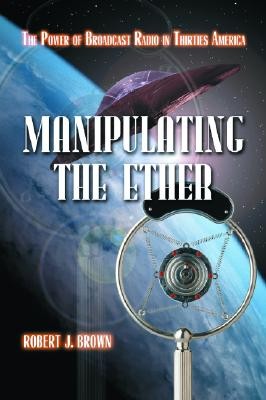
- We will send in 10–14 business days.
- Author: Robert J Brown
- Publisher: McFarland & Company
- ISBN-10: 0786420669
- ISBN-13: 9780786420667
- Format: 17.7 x 23 x 1.8 cm, minkšti viršeliai
- Language: English
- SAVE -10% with code: EXTRA
Reviews
Description
Franklin D. Roosevelt was the first politician to recognize the power of radio. He appealed directly to the American people for support of his New Deal and for his foreign policy. Roosevelt's speeches and fireside chats were broadcast over networks only recently equipped with newsrooms. Listeners immediately learned of events they earlier would not have heard about for days. In those newsrooms, commentators began to interpret the news for average listeners, sometimes slanting it to reflect their own view. But it fell to a young star to demonstrate the full power of the medium. On October 30, 1938, Orson Welles' War of the Worlds broadcast brought widespread panic with its fictional newscast of an alien invasion. How Roosevelt used radio, how the news was reported, and the changes Welles caused are all detailed.
EXTRA 10 % discount with code: EXTRA
The promotion ends in 21d.22:17:51
The discount code is valid when purchasing from 10 €. Discounts do not stack.
- Author: Robert J Brown
- Publisher: McFarland & Company
- ISBN-10: 0786420669
- ISBN-13: 9780786420667
- Format: 17.7 x 23 x 1.8 cm, minkšti viršeliai
- Language: English English
Franklin D. Roosevelt was the first politician to recognize the power of radio. He appealed directly to the American people for support of his New Deal and for his foreign policy. Roosevelt's speeches and fireside chats were broadcast over networks only recently equipped with newsrooms. Listeners immediately learned of events they earlier would not have heard about for days. In those newsrooms, commentators began to interpret the news for average listeners, sometimes slanting it to reflect their own view. But it fell to a young star to demonstrate the full power of the medium. On October 30, 1938, Orson Welles' War of the Worlds broadcast brought widespread panic with its fictional newscast of an alien invasion. How Roosevelt used radio, how the news was reported, and the changes Welles caused are all detailed.


Reviews